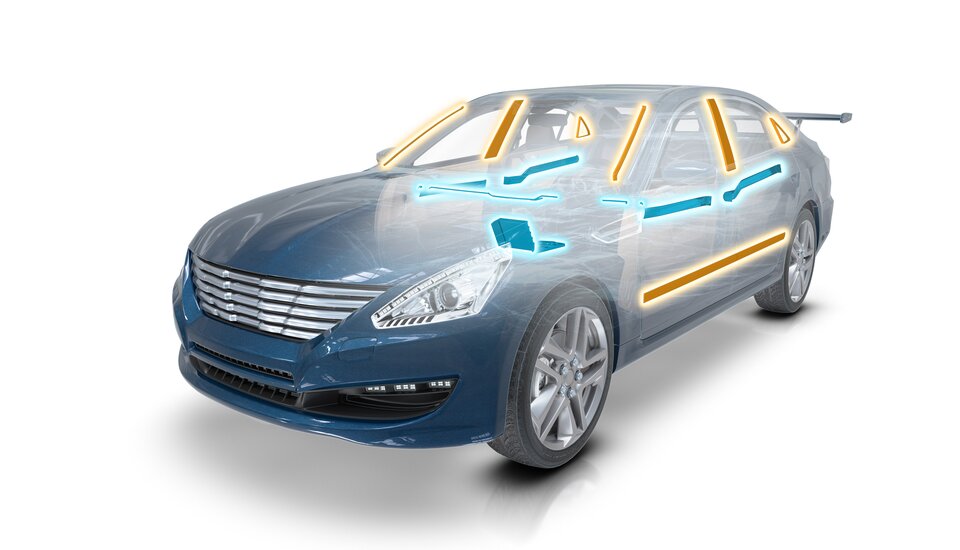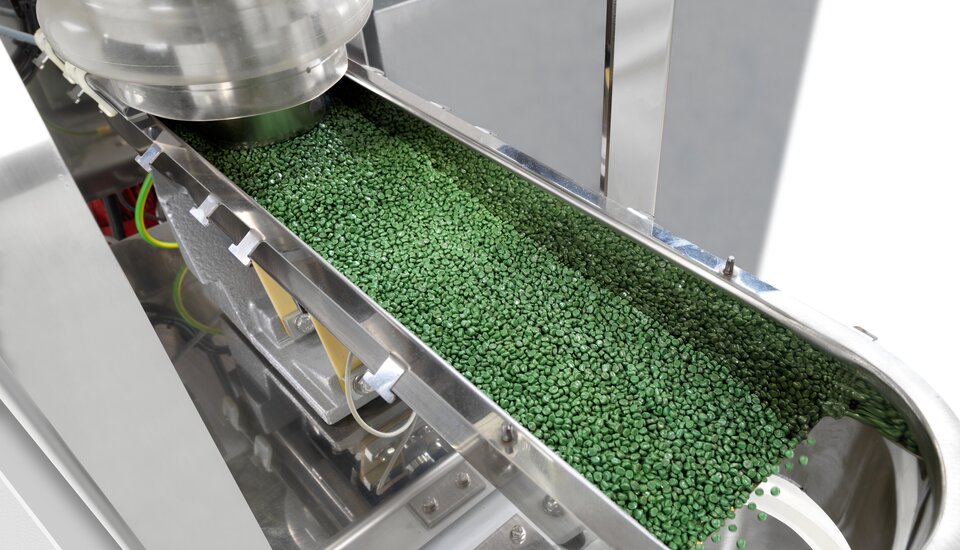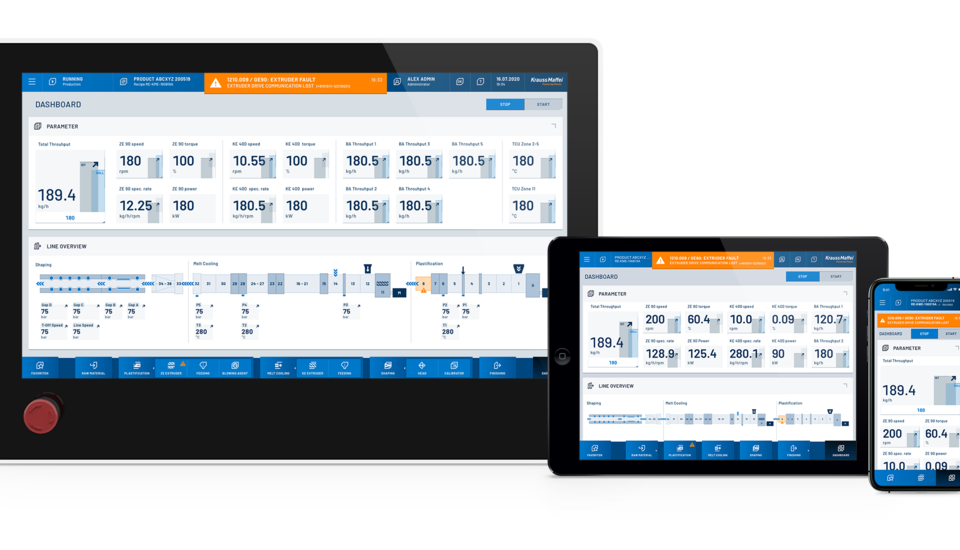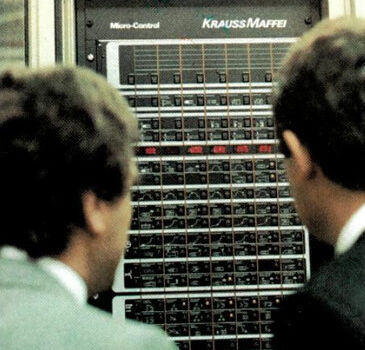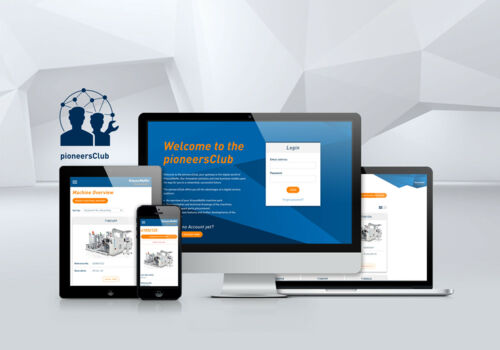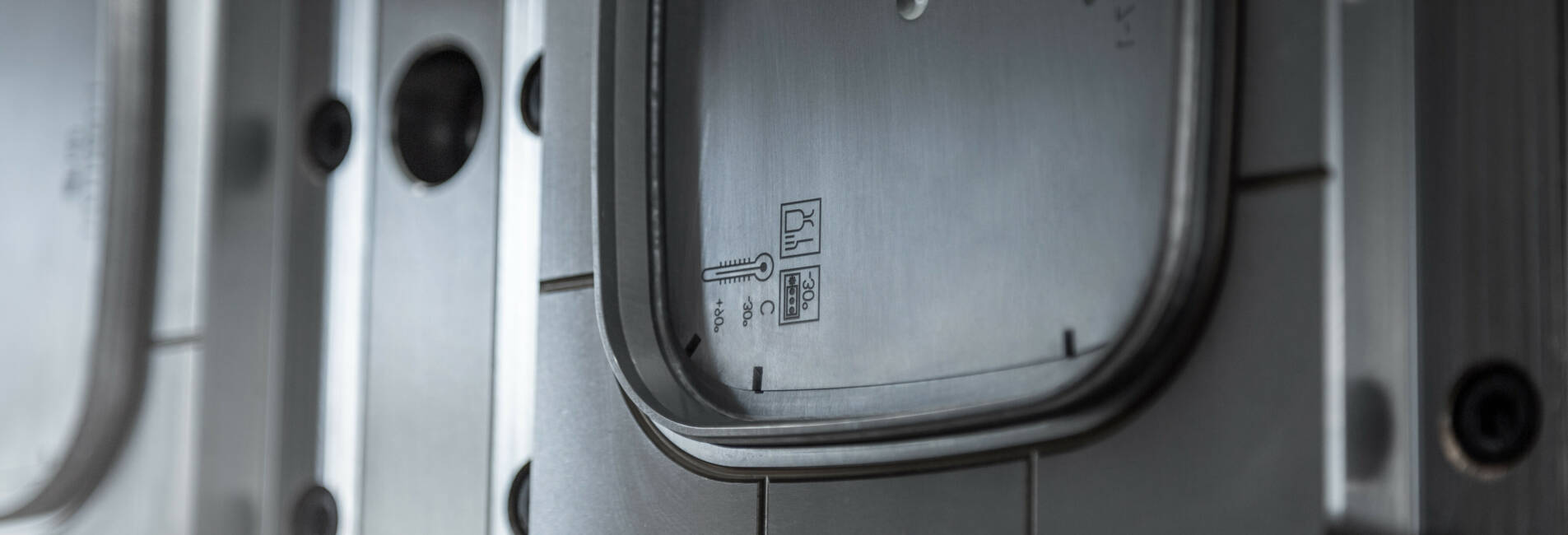
Partners & Projects
A strong combination for sustainable packaging
| Michael Birchler
Environmentally-friendly packaging with NETSTAL machines and GLAROFORM molds
Plastic packaging is the subject of increasing criticism in current public debate. The sector is responding, with many companies collectively working on innovative sustainable packaging concepts. One example involves the longstanding cooperation between KraussMaffei and Swiss mold maker GLAROFORM. At K 2019, the companies will be jointly presenting two exciting packaging applications on NETSTAL machines.
A brief review: In 1986 Max Eberle took over a small company with a staff of three in Näfels. The toll manufacturer’s most important customer in the early years was what was then Netstal-Maschinen AG. Throughout the following years Eberle transformed the company into a specialist mold maker for packaging applications. As early as 1990, the first mold for a high-speed IML application was launched onto the market. Several NETSTAL injection molding machines were acquired for the development and validation of new molds. So it was that two innovative and precision-oriented companies from the small town of Näfels in the Swiss canton Glarus substantially influenced the development of thin-walled plastic packaging over the last 3 decades.
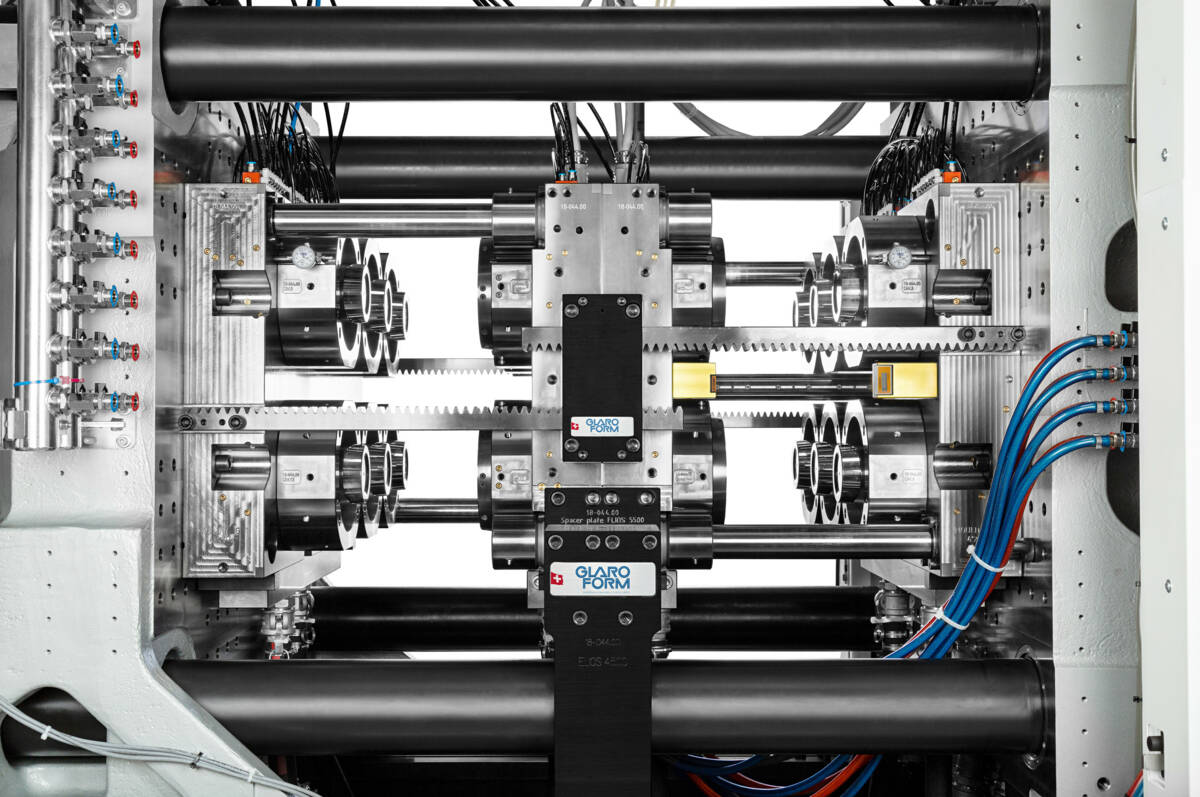
High-Performance meets High-Performance
Stack mould from GLAROFORM in the generous installation space of a NETSTAL ELIOS
“From the very beginning we set out to manufacture the fastest and most durable high-quality and high-precision molds for thin-walled applications; the NETSTAL machines enabled us to consistently get the most out of our molds”Max Eberle, Director GLAROFORM AG
“With GLAROFORM we can look back on a long and fruitful relationship based on an identical philosophy. The pursuit of precision, superlative performance and reliability is especially important to both companies. It is in our DNA and ultimately also has a lot to do with sustainability when injection molding machines and molds have a long service life,” explained Renzo Davatz, CEO of KraussMaffei HighPerformance AG
Three high-performance machines from the NETSTAL range are still currently being used at the state-of-the-art technical center for testing and validation. GLAROFORM produces around 50 new molds a year with its 45 staff. Over 900 molds carrying the Glarus-based company logo and Swiss cross are in operation within the market. More than 80 percent of these are used in thin-walled applications. In terms of the excellent cooperation with NETSTAL, nothing has changed under the new company name KraussMaffei HighPerformance AG. Quite the opposite, against the backdrop of the current debate on 'plastic packaging', the companies are working even closer together on innovative solutions to achieve greater sustainability for packaging.
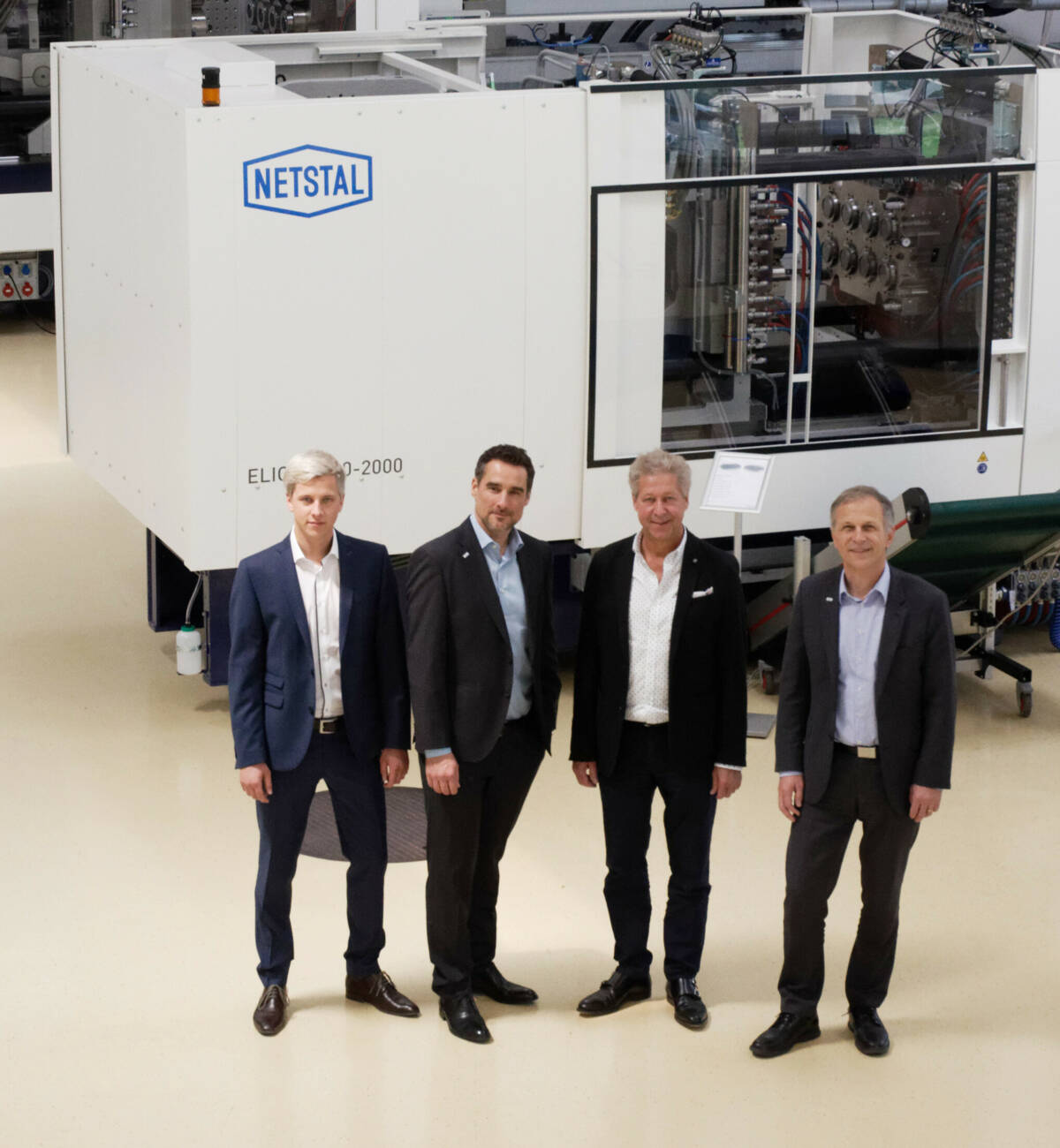
A strong combination for sustainable packaging
Robin and Max Eberle of GLAROFORM (1st and 3rd from left) with Renzo Davatz (CEO) and Ruedi Speck (Sales Manager Switzerland) of KraussMaffei HighPerformance AG
Sustainable packaging solutions at K 2019
Two testaments to this will be unveiled at K 2019 in Dusseldorf in the form of innovative packaging applications. In operation on the KraussMaffei stand (Hall 15/D24) will be the NETSTAL ELIOS 4500, currently the most powerful and fastest injection molding machine for packaging applications, featuring a 6-cavity GLAROFORM high-performance mold in the spacious installation space. IML-decorated round cups that will subsequently hold 250 grams of cream cheese and are destined for Australian supermarkets will be injection-molded in a cycle time of 4.2 seconds. The application is already sold and will be shipped to the customer on the fifth continent after the trade fair.
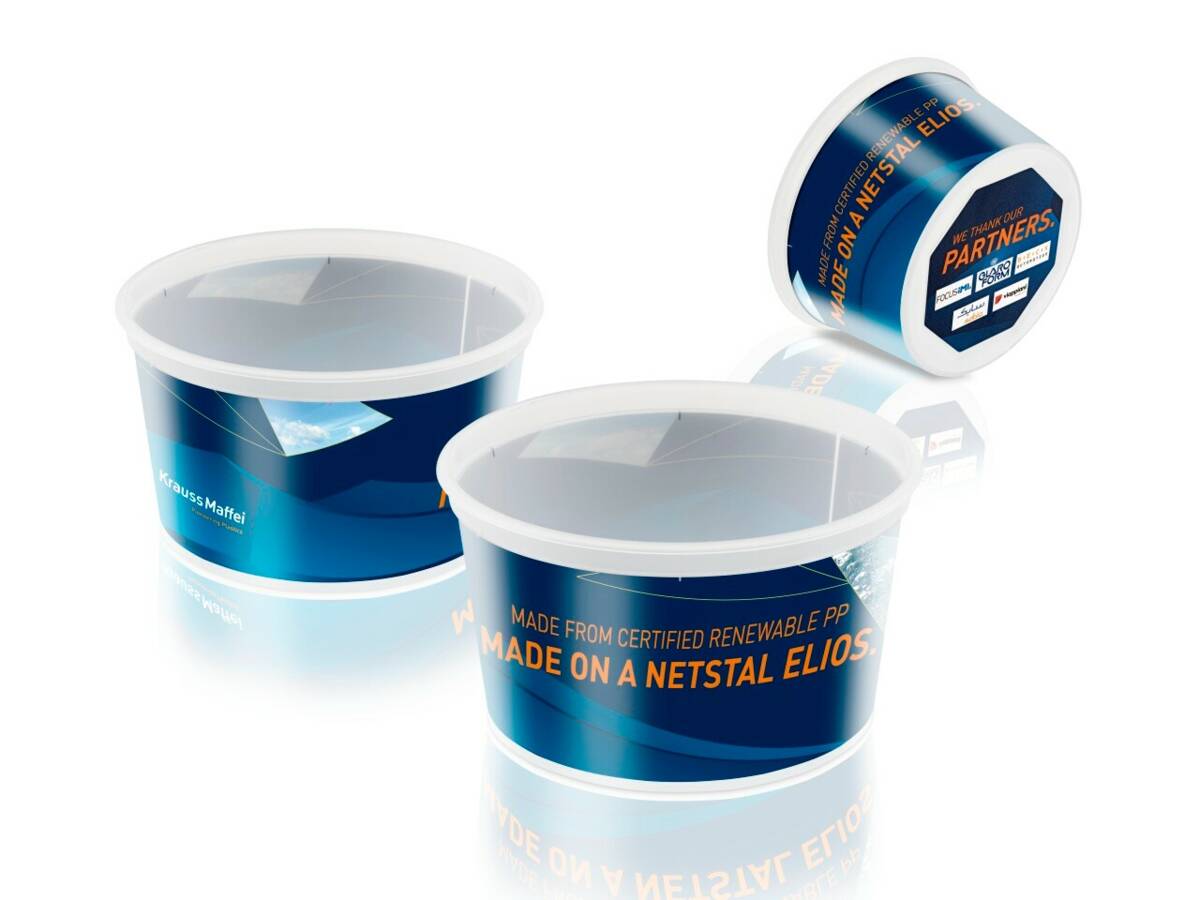
Made of certified renewable polypropylene
100% recyclable IML container
Each cup weighs a mere 9.07 grams. Compared to an ostensibly more sustainable glass jar, the lightweight and thin-walled packaging plays its part in achieving the lowest possible transportation weight. Yet this is not the final say as regards sustainability, because the application manufactures the lightweight cups from a certified and renewable copolymer which is based on tall oil. Tall oil is extracted from wood and would be a waste product from paper manufacturing. This material has processing characteristics identical to conventional polypropylene (PP) and is recyclable within the recycling system. The packaging also has the same beneficial attributes in terms of protective function, long shelf life and minimum energy consumption within the injection molding process.
Increased material savings with injection compression molding
Meanwhile, on the GLAROFORM stand (Hall 12/A51-03) a NETSTAL ELION 1750 will be in operation. Four cavities will be producing thin-walled IML beverage cups with a 223 milliliter volume. The application covers three important aspects of the circular economy with its matchless material efficiency, efficient production process and homogeneous material. Using the weight-reducing ICM process, the cup is manufactured in a cycle time of 3.2 seconds. A significantly thinner wall is achieved through the injection-compression process. In this application that means just 0.3 of a millimeter, saving up to 20 percent on material in comparison to conventional processes. The ICM process also allows for the use of a polypropylene with an extremely low Melt Flow Index (MFI) of 25.
With the two exhibits at K 2019, GLAROFORM and KraussMaffei are demonstrating that plastic packaging and sustainability can go hand-in-hand. Plastics offer numerous benefits and their development has by no means reached the end of the road. “It’s good to see that together with Glaroform we are again on the cusp of writing a new chapter in the fascinating story of thin-walled packaging; with innovative packaging solutions that are optimally geared towards the ambitious sustainability targets in the food industry,” concluded Davatz.
GLAROFORM and KraussMaffei at K 2019: Hall 12 / A51-03 (GLAROFORM) and Hall 15 / D24 / C27 / B27 / C24 (KraussMaffei)
